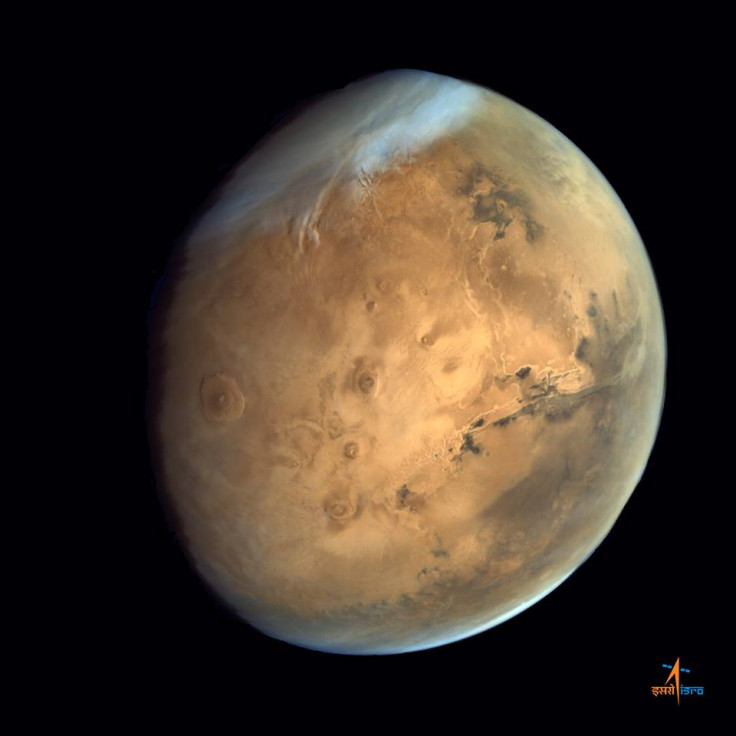Martian opal gemstone could indicate that Mars 'once held life'

Traces of a colourful gemstone that was carried from Mars to Earth via a meteorite could be the evidence that there was once life on the Red Planet.
Scientists from the University of Glasgow have been analysing an opal stone that came crashing into Egypt in 1911.
It was transported from Mars via a meteorite known as Nakhla, which is believed to have been separated from its home planet millions of years ago, most probably due to an asteroid hitting Mars.
The researchers were able to confirm that it was a fire opal, which lends support to evidence spotted by Nasa which appears to show the colourful gemstone on Mars.
The team made their discovery by using a powerful scanning electron microscope to find minute traces of the gem in the meteorite. It would have been formed by the interaction of Martian water with silica within the meteorite.
Using this finding, Nasa will be able to better understand where to look for life on Mars.
Professor Martin Lee, of the University's School of Geographical and Earth Sciences, and lead author of the research paper, which was published in Meteoritics and Planetary Science, said: "The slice of Nakhla that we have is small, and the amount of fire opal we've found in it is even smaller, but our discovery of opal is significant for a couple of reasons.
"Firstly, it definitively confirms findings from NASA's imaging and exploration of the Martian surface which appeared to show deposits of opal. This is the first time that a piece of Mars here on Earth has been shown to contain opal.
"Secondly, we know that on Earth opals like these are often formed in and around hot springs. Microbial life thrives in these conditions, and opal can trap and preserve these microbes for millions of years. If Martian microbes existed, it's possible they too may be preserved in opal deposits on the surface of Mars.
"Closer study of Martian opals by future missions to Mars could well help us learn more about the planet's past and whether it once held life."
© Copyright IBTimes 2025. All rights reserved.






















